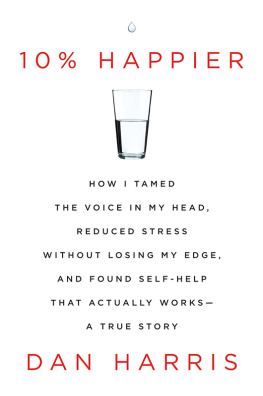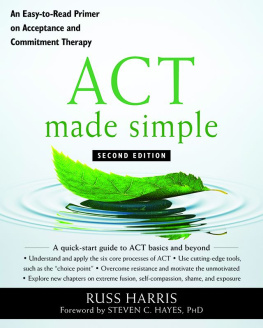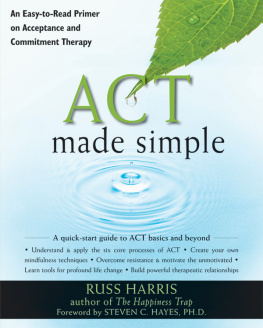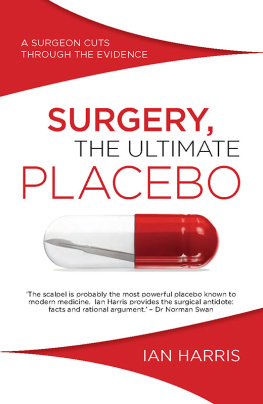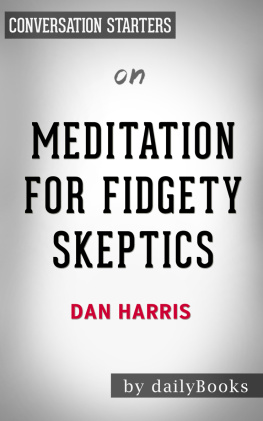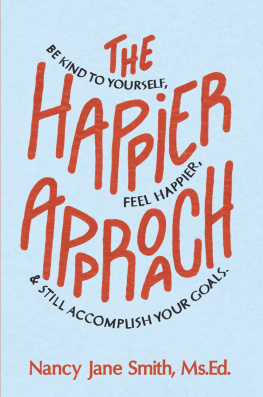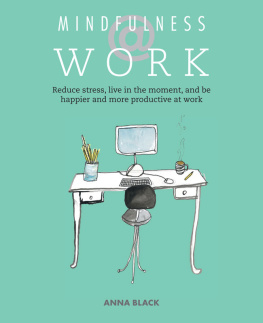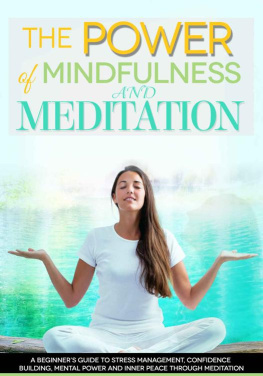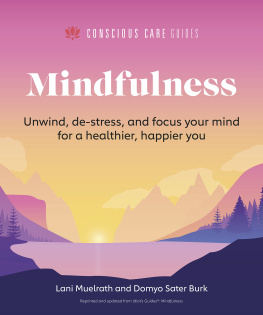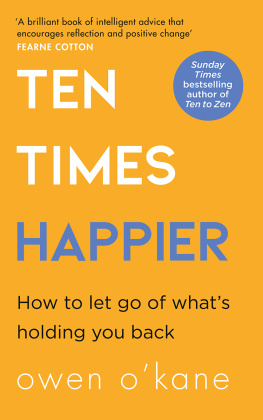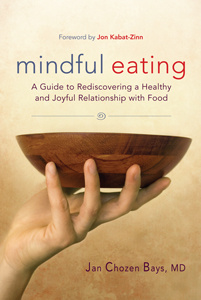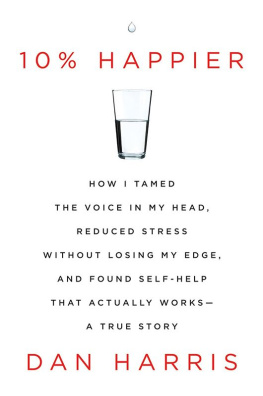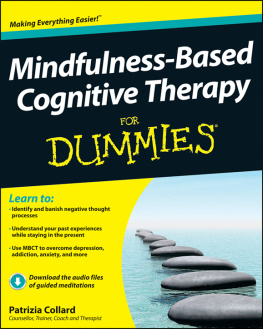I n the immortal words of Jay Z, First of all, I want to thank my connect. Huge gratitude to my wife, Dr. Bianca Harris, for making me 100% happier before I became 10% happier. Thank you for introducing me to the work of Dr. Mark Epstein, for tiptoeing around our little apartment when Im meditating, for putting up with my going on retreats, and for helping me every step of the way with this bookeven though you were uncomfortable with my repeatedly gushing about your brilliance and beauty. I love you.
Speaking of the amazing Mark Epstein, I want to thank him for agreeingfor reasons Ill never fully understandto make friends with an obnoxiously inquisitive stranger. (Meanwhile, a big youre welcome to Marks wife, Arlene Shechet, who, when she heard that Id made fun of her husbands clogs, said, Oh, thank youI hate those shoes!)
I want to thank all of my Jew-Bu friends, including Mark, Joseph Goldstein, Sharon Salzberg, Daniel Goleman and Tara Bennett-Goleman, Jon Kabat-Zinn, and Richie Davidson. You guys changed my mind.
I cant forget my other contemplative co-conspirators, whose writings, friendship, and advice have benefited me enormously: Sam Harris, Stephen Batchelor, Robert Thurman, Jud Brewer, Jack Kornfield, Matthieu Ricard, Jay Michaelson, Jim Gimian, Barry Boyce, Melvin McLeod, David Gelles, Josh Baran, Representative Tim Ryan, Jeff Walker, Jeff Warren, Daniel Ingram, Tara Brach, Spring Washam, Emiliana Simon-Thomas, Chade-Meng Tan, Mirabai Bush, Vince Horn, Elizabeth Stanley, Janice Marturano, Soren Gordhamer, and Gyano Gibson.
I was lucky enough to have a volunteer army of first readers, who dedicated truly unreasonable amounts of their personal time, and saved me from embarrassing myself in countless ways. Chief among them are: Matt Harris, Regina Lipovsky, Karen Avrich, and Mark Halperin, four of my favorite people on earth, to whom I am now forever indebted. Other game-changing first readers included: Jessica Harris, Susan Mercandetti, Kris Sebastian, Amy Entelis, Kerry Smith, Andrew Miller, Nick Watt, Ricky Van Veen, Wonbo Woo, Glen Caplin, Zev Borow, and Hannah Karp. This book would not have happened without their guidance, or without the early encouragement of my hilarious and supportive book agent, Luke Janklow, as well as my excellent and patient editor, Denise Oswald, both of whom talked me off of countless ledges. (Not incidentally, I also want to thank the whole team at It Books: Lynn Grady, Michael Barrs, Sharyn Rosenblum, Tamara Arellano, Beth Silfin, and ace copy editor Rob Sternitzky.) Also, I must acknowledge William Patrick, who swooped in late in the game and made some hugely valuable contributions.
There are many past and present colleagues at ABC News who contributed in various ways to this book: Ben Sherwood, Diane Sawyer, James Goldston, Barbara Walters, David Muir, George Stephanopoulos, Bill Weir, Chris Cuomo, Dr. Richard Besser, Jake Tapper, David Wright, Bob and Lee Woodruff, Jeffrey Schneider, Alyssa Apple, Julie Townsend, Barbara Fedida, Felicia Biberica, Almin Karamehmedovic, Jeanmarie Condon, Bianna Golodryga, Ron Claiborne, Ginger Zee, Sara Haines, John Ferracane, Tracey Marx, Cynthia McFadden, Dan Abrams, Alfonso Pena, Diane Mendez, Nick Capote, Miguel Sancho, Beau Beyerle, Wendy Fisher, David Reiter, Joe Ruffolo, Simone Swink, Andrew Springer, and Jon Meyersohn.
A few personal friends Id like to mention who also hooked me up along the way: Willie Mack, Josh Abramson, Jason Harris, Jason Hammel, Kori Gardiner, Meg Thompson, Stephan Walter, and Kaiama Glover.
In the book, I borrowed or modified some lovely turns of phrase from several authors I admire: Gary Shteyngart seems to have invented the word blightscape in The Russian Debutantes Handbook ; Benjamin Kunkel writes about reality... gathering in the corners of the room in an ecstasy scene in Indecision; Ben Sherwood uses the term honeyed light in The Survivors Club .
Finally, to Jay and Nancy Lee Harris, the two truly indispensable causes and conditions (to use some Buddhist phraseology) for this book. This seems like a good place to note, for the record, something my dad recently said that surprised me: the price of security is insecurity line was not, in fact, his personal motto, but instead something he concocted to make his anxious young son feel better about worrying so much. So apparently, the advice was not strategic, but rather compassionate. It only took me four decades to figure out how to put it to use wisely. Thanks to both of you for being as close to perfect as parents could possibly be, for letting me write about you honestly, and for not freaking out when I finally told you (nearly a decade after the fact) about the whole drug thing. Also, I forgive you for sending me to that yoga class.
There are a lot of bad reasons not to meditate. Here are my top three:
1. Its bullshit. I get it. As you may remember, I used to feel this way, too. But theres a reason why businesspeople, lawyers, and marines have embraced meditation. Theres no magic or mysticism requiredits just exercise. If you do the right amount of reps, certain things will happen, reliably and predictably. One of those things, according to the research, is that your brain will change in positive ways. You will get better at not being carried away by your passing emotional squalls; you will learnmaybe 10% of the time, maybe moreto respond, not react. We now know that happiness, resilience, and compassion are skills, susceptible to training. You dont have to resign yourself to your current level of well-being, or wait for your life circumstances to change; you can take the reins yourself. You brush your teeth, you take the meds your doctor prescribes, you eat healthfullyand if you dont, you probably feel guilty about it. Given everything modern science is telling us, I think its now safe to put meditation in this category.
2. Its too hard for me. I call this the fallacy of uniqueness argument. People often tell me, I know I should meditate, but you dont understand: my mind just moves too fast. I cant possibly do this. News flash: Welcome to the human condition. Everybodys mind is out of control. Even experienced meditators struggle with distraction. Moreover, the idea that meditation requires you to clear your mind is a myth. (More on this misapprehension below.)
3. I dont have the time. Everybody has five minutes. My advice is to start with five minutes a day and to tell yourself youll never do more. If you increase your time gradually and organically, great. If not, totally fine.
Basic Mindfulness Meditation
1. Sit comfortably. You dont have to twist yourself into a cross-legged positionunless you want to, of course. You can just sit in a chair. (You can also stand up or lie down, although the latter can sometimes result in an unintentional nap.) Whatever your position, you should keep your spine straight, but dont strain.
2. Feel your breath. Pick a spot: nose, belly, or chest. Really try to feel the in-breath and then the out-breath.
3. This one is the key: Every time you get lost in thoughtwhich you will, thousands of timesgently return to the breath. I cannot stress strongly enough that forgiving yourself and starting over is the whole game. As my friend and meditation teacher Sharon Salzberg has written, Beginning again and again is the actual practice, not a problem to overcome so that one day we can come to the real meditation.
Pro tips
To stay focused on the breath, try making a soft mental note, like in and out. (Dont get too mesmerized by the note itself, just use it to direct your attention to the actual sensory experience of the breath.)
Noting, as its called, can also be useful when something strongsuch as itches, pain, worries, or hungercomes along and drags your attention away from the breath. The act of applying a labelplanning, throbbing, fantasizingcan objectify whatevers going on, making it much less concrete and monolithic. (Dont get too caught up in thumbing through your internal thesaurus for the right word. Make a note and move on.)
Next page
